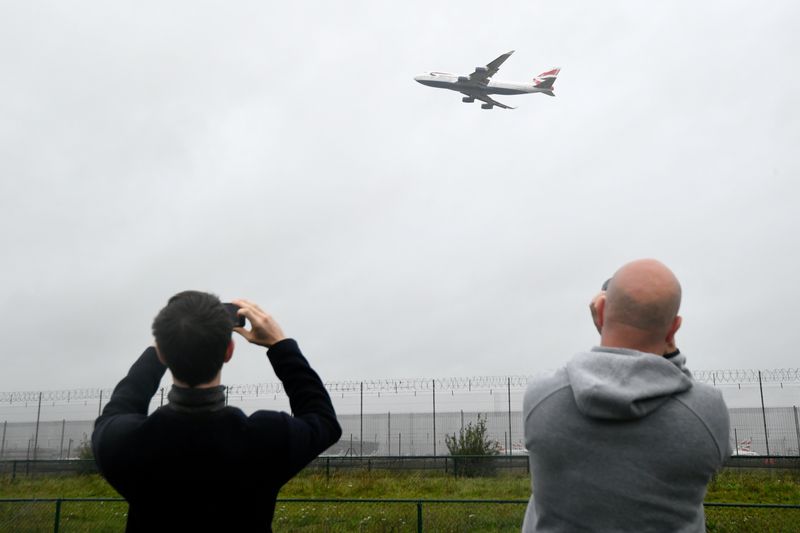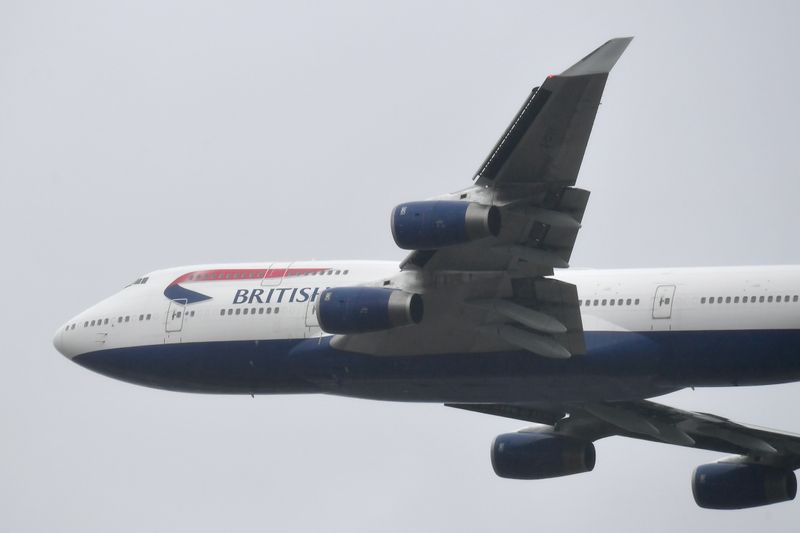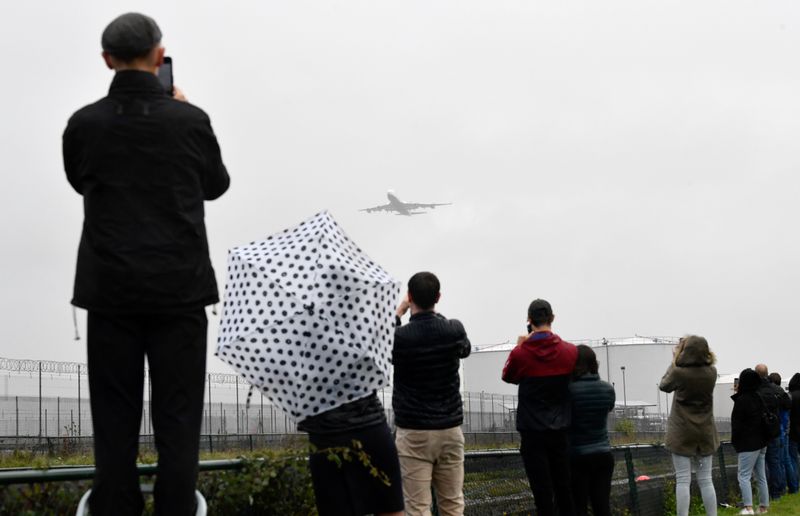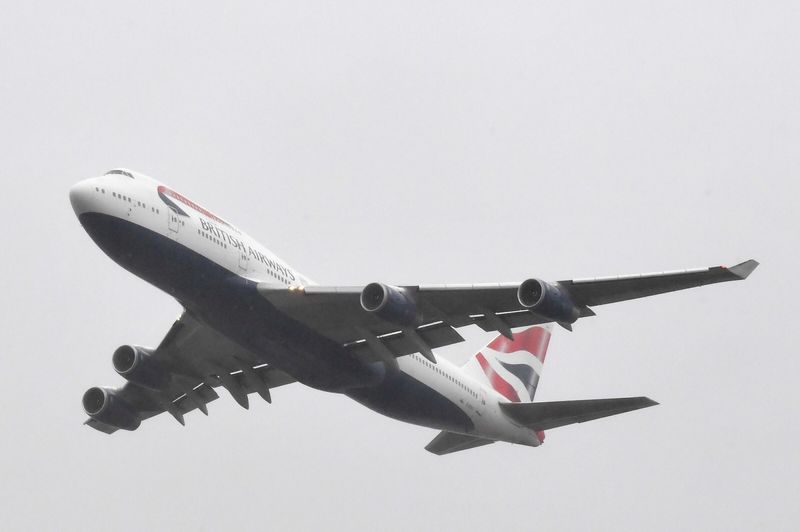LONDON (Reuters) – British Airways’ last jumbo jets bade farewell to London on Thursday but cloud and driving rain prevented a rare synchronised dual take off for the “Queen of the Skies” which brought long-haul flights to the masses.
Once the world’s largest operator of the 747, BA has now retired its entire jumbo jet fleet after COVID-19 curtailed most air travel, accelerating the move to more fuel-efficient planes.
Chief Executive Alex Cruz said it was “a difficult day for everybody at British Airways as the aircraft leaves our home at Heathrow for the very last time”.
The airline had planned a rarely seen synchronised dual take off on parallel Heathrow runways but the weather prevented that. The final flights were witnessed by BA staff and engineers who lined up to see them off.
For over 50 years, the 747 has been the world’s most easily recognised jetliner with its humped fuselage, four engines and 16 main wheels.
It took its maiden flight in 1969 and soon secured its place in history as the jet which allowed more affordable air travel due its size and range.
Passengers have included John Paul II, who arrived for the first visit to Ireland by a pope on an Aer Lingus 747 in 1979. Ayatollah Ruhollah Khomeini returned to Iran from exile on an Air France jumbo during the Islamic Revolution that year.
BA’s predecessor BOAC introduced the 747 on the London-New York route in 1971, and at its peak BA had 57 747-400s.
Former pilots have told how the jet took some getting used to, from a cockpit positioned almost 30 feet above the ground and more when angling the nose higher just before touching the runway.
“It was like landing a block of flats from the 2nd floor,” Hugh Dibley, a former BOAC captain, told Reuters.
The owner of British Airways, IAG <ICAG.L>, is battling to survive after the pandemic wiped out much of the global flying market.
(Editing by Catherine Evans, Guy Faulconbridge and Giles Elgood)






















